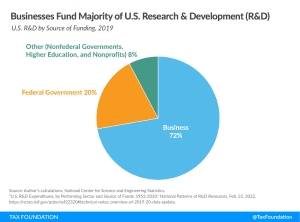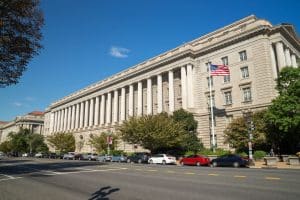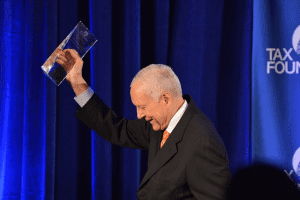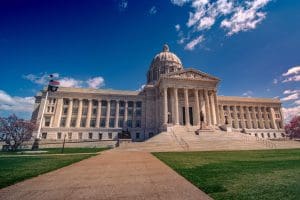The economic crisis caused by the coronavirus pandemic poses a triple challenge for tax policy in the United States. Lawmakers are tasked with crafting a policy response that will accelerate the economic recovery, reduce the mounting deficit, and protect the most vulnerable.
To assist lawmakers in navigating the challenge, and to help the American public understand the tax changes being proposed, the Tax Foundation’s Center for Federal Tax Policy modeled how 70 potential changes to the tax code would affect the U.S. economy, distribution of the tax burden, and federal revenue.
In tax policy there is an ever-present trade-off among how much revenue a tax will raise, who bears the burden of a tax, and what impact a tax will have on economic growth. Armed with the information in our new book, Options for Reforming America’s Tax Code 2.0, policymakers can debate the relative merits and trade-offs of each option to improve the tax code in a post-pandemic world.


U.S.-China Trade War Hurt American Industries and Workers
While the U.S. tariffs were intended to protect American industries, they have largely hurt the U.S. economy. Rather than pass on the tariffs to Chinese consumers, analysis shows that most U.S. firms simply bore the costs.
5 min read
Evaluating Wyoming’s Business Tax Competitiveness
Wyoming’s low taxes are highly attractive, but policymakers are still hard at work helping the state achieve broader economic development goals.
13 min read
The Aftermath of Arizona’s Proposition 208 and the Potential for a Flat Tax
Arizona now joins a growing cohort of states that are moving toward a flat income tax. Pending revenue triggers, the income tax rate will be reduced to 2.5 percent giving Arizona one of the lowest individual income tax rates in the country.
7 min read
FDA Menthol Ban Would Boost Smuggling, Reduce Revenues, with Few Health Benefits
Learn more about the FDA’s proposal to ban the sale of menthol cigarettes and flavored cigars. Including its effect on revenue & public health measures.
4 min read
Tax Filing Season: Options for Improvement
Efforts to improve the taxpayer experience should focus on the IRS’s operations and include structural improvements to the tax code.
4 min read
Remembering Senator Orrin Hatch’s Historic Tax Legacy
Among the many achievements in the illustrious career of former Sen. Orrin Hatch (R-UT) was his commitment to bipartisan tax reform.
3 min read
Kansas Policymakers Should Improve Food Credit, Not Exempt Groceries
This legislative session, the sales tax on food has garnered a great deal of attention in Kansas, with policymakers on both sides of the aisle proposing the removal of groceries from the sales tax base.
7 min read
The Misguided Notion of Government-Set Prices for Prescription Drugs
Government-set pricing of prescription drugs is not a fix for today’s rampant inflation and further, it would give rise to new problems of its own.
6 min read
Missouri Tax Reform Could Give State Competitive Edge
Tax reform has become a major focus for state legislatures this session, and Missouri lawmakers are tuned in to the action: after adjusting individual income tax triggers in 2021, the legislature is exploring further tax reform options.
6 min read